GES, NaCCA Propose Dates to Conduct 2022 National Standardised Test for P2 and P4 Students
GES, NaCCA Propose Dates to Conduct 2022 National Standardised Test for P2 and P4 Students
Ghana Education Service (GES) and National Council for Curriculum and Assessment (NaCCA) have proposed dates to conduct the 2022 National Standardised Test for Primary 2 and Primary 4 students/learners across the country.
Junior Ranks Promotion for Senior Superintendent II and I on District and Municipal Level 2022
According to the bodies responsible for the assessment of learners under the programme, this year’s National Standardised Test (NST) is proposed to be conducted in November and December 2022 respectively.
CLICK HERE TO JOIN OUR Whatsapp PAGE
JOIN OUR Telegram PAGE HERE
Proposed dates for 2022 National Standardised Test
The data available to GhEduJob.Com suggests that, GES and NaCCA have proposed to conduct the 2022 National Standardised Test for Primary two (2) students from 1st November to 30th November, 2022 and between 12th December to 16th December, 2022 respectively.
GES and NaCCA also proposed the formation of a Technical Committee to plan this year’s test which will include Primary 2 leaders/students as well, along with the Primary 4 students/learners.
This was disclosed in a meeting with Management of GES and Assessment team of the National Council for Curriculum and Assessment (NaCCA) on 24th August, 2022.
Recommended
-
Excerpts From Gnat Hour And All What Ghana Teachers Need To Know
-
Junior Ranks Promotion for Senior Superintendent II and I on District and Municipal Level 2022
-
Private school Students To Be Included In 2022 Standardized Test
-
HEALTHY FRUIT COMBINATIONS TO START YOUR DAY
The meeting was organize to review the results of the 2021 National Standardised Test (NST) conducted for Primary 4 and to also address some challenges that confronted both Agencies so they do not reoccur in the 2022 edition.
Average scores per various Regions/Districts in both English and Maths were critically assessed to know the Districts or Regions that fell below the proficiency level.

Test Administration for 2022 NationalStandardised Test
According to GES and NaCCA, the 2022 National Standardised Test will be conducted in schools close to the end of the academic year by a team of trained Test administrators and monitors preceded by;
- Selection of Test Administrators
- Selection of training of Trainers of Test Administrators
- Training of Test Administrators
- Assigning Test Administrators to schools.

CLICK HERE TO JOIN OUR Whatsapp PAGE
JOIN OUR Telegram PAGE HERE
Subjects for the National Standardised Test
The following subjects shall be available to testees taking the National Standardized Test (NST) for Primary 4 and Primary 2 pupils.
Subjects for the test are:
- English Language
- Mathematics
Recommended
-
Excerpts From Gnat Hour And All What Ghana Teachers Need To Know
-
Junior Ranks Promotion for Senior Superintendent II and I on District and Municipal Level 2022
-
Private school Students To Be Included In 2022 Standardized Test
-
HEALTHY FRUIT COMBINATIONS TO START YOUR DAY
Ghana’s recent Education Strategic Plan, 2018-2030
NaCCA and GES under the Ministry of Education have set these goals to meet Ghana’s recent Education Strategic Plan, 2018-2030 which seeks to:
- improve equitable access to and participation in inclusive quality education at all levels.
- improve quality of teaching and learning and Science, Technology, Engineering and Mathematics (STEM) at all levels.
- promote sustainable and efficient management, financing and accountability of education service delivery.
Among the offshoots of the Plan is the introduction of the National Standardized Test (NST) which is to measure the learning outcomes of the educational reform at the basic level.
According to plans, data collected from the National Standardized Test (NST) would inform policy review and formulation with respect to classroom teaching and learning.

2021 National Standardised Test (NST)
The Ahafo, Bono East and Bono regions have emerged the hub of public basic education, as pupils in those regions led in the first-ever National Standardised Test (NST) for Primary Four (P4) pupils
The results of the National Standardised Test (NST), in which almost 390,000 Primary 4 pupils from 14,883 public schools participated, showed that the three regions, which were formerly together as the Brong Ahafo Region, emerged as a strong base for lower primary education.
After the test in Mathematics and English Language, P4 pupils in the Ahafo Region posted the highest mean scores of 67 per cent in English and 58 per cent in Mathematics, while those in the Bono Region posted 65 per cent in English and 55 per cent in Mathematics, with those in the Bono East Region scoring 58 per cent in English and 50 per cent in Mathematics.
CLICK HERE TO JOIN OUR Whatsapp PAGE
JOIN OUR Telegram PAGE HERE
Recommended
-
Excerpts From Gnat Hour And All What Ghana Teachers Need To Know
-
Junior Ranks Promotion for Senior Superintendent II and I on District and Municipal Level 2022
-
Private school Students To Be Included In 2022 Standardized Test
-
HEALTHY FRUIT COMBINATIONS TO START YOUR DAY
The Volta Region posted the least mean scores of 34 per cent in English and 27 per cent in Mathematics, according to the results made available to the Daily Graphic.
MATHEMATICS
Mathematics emerged as the major challenge among pupils in public P4, the NST results indicated.
Out of the 367,766 pupils who took the test, about 228,015 of them, representing 62 per cent, performed below the basic (BB) level, having obtained 49 per cent and below.
Fourteen per cent of those who took the test performed up to the basic (B) level, 13 per cent performed up to proficiency level, while 11 per cent performed to the advanced level.
The Volta Region was the lowest performing region, with 96 per cent of the P4 pupils falling within the BB level, three per cent attaining basic level and one per cent attaining proficiency.
The Western and the Western North regions followed, with 96 and 93 per cent, respectively, of their pupils falling within the BB level.
The Eastern, the Upper East and the Western regions followed, with 77, 76 and 72 per cent, respectively, in the BB level.
The test results also showed that the three worst performing regions in Mathematics were equally the worst performing in English Language.
The outcome of the test, therefore, indicates that a lot more effort is needed in the three regions to help learners at the lower primary level to catch up with their mates elsewhere.
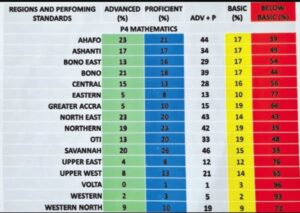
TOOL
The performance of the P4 pupils is classified under four categories, according to the National Pre-tertiary Learning Assessment Framework (NPLAF), 2020.
Pupils who scored 49 per cent or lower are classified as Below Basic (BB), those whose scores ranged between 50 and 65 per cent are classified as Basic (B), while those in the score range of 66 to 79 per cent are classified as Proficient (P).
Pupils who scored 80 per cent and above are considered Advanced (A) or high level of proficiency.
CLICK HERE TO JOIN OUR Whatsapp PAGE
JOIN OUR Telegram PAGE HERE
Recommended
-
Excerpts From Gnat Hour And All What Ghana Teachers Need To Know
-
Junior Ranks Promotion for Senior Superintendent II and I on District and Municipal Level 2022
-
Private school Students To Be Included In 2022 Standardized Test
-
HEALTHY FRUIT COMBINATIONS TO START YOUR DAY
PERFORMANCE
The performance of the pupils in English Language was fairly better than in Mathematics.
Fifty per cent of the pupils performed below B in English, while the other 50 per cent was made up of 15 per cent B, 14 per cent P and 21 per cent A.
The Ashanti Region firmly positioned itself as the second-best performing region in both English Language and Mathematics after the Ahafo Region, with the Bono East and the Bono regions clinching the third and fourth places, respectively, in both subjects.
PERFORMANCE STANDARDS PROFICIENCY
The Central Region, however, recorded the highest scores in English Language, with 41 per cent of its pupils scoring 80 per cent or above in the subject, followed by North East Region, which had 40 per cent of its pupils scoring 80 per cent and above in the subject.
The test, which was conducted on December 17, last year to determine the performance level of each pupil, was a curriculum-based competency assessment programme that reflected the entire curriculum.
CLICK HERE TO JOIN OUR Whatsapp PAGE
JOIN OUR Telegram PAGE HERE
CANDIDATURE
A total of 32,508 out of the 398,698 pupils who presented themselves for the English Language test did not write it, while 31,720 out of the 399,486 pupils registered to write the Mathematics test did not take part.
The NST is for the assessment of curriculum standards, including reading, writing, arithmetic and creativity, knowledge, skills, values and attitudes that are central to the new pre-tertiary education curriculum.
Recommended
-
Excerpts From Gnat Hour And All What Ghana Teachers Need To Know
-
Junior Ranks Promotion for Senior Superintendent II and I on District and Municipal Level 2022
-
Private school Students To Be Included In 2022 Standardized Test
-
HEALTHY FRUIT COMBINATIONS TO START YOUR DAY
NaCCA COMMENTS
Commenting on the outcome of the test, the Director-General of the National Council for Curriculum and Assessment (NaCCA), Professor Edward Appiah, said the performance was an improvement over an assessment carried out in 2015 and 2016, in which the performance in literacy and numeracy was very low.
He said the test was important to offer a targeted intervention early, so that children below the average could be helped, instead of waiting until 11 years when the child would be writing the Basic Education Certificate Examination (BECE).
“By that time, anything we would want to do would amount to wasting the child’s time. So it was decided that we try to assess them at Basic Two, Four and Six and see the level of performance, so that if there are interventions, we can provide them along the way before they reach that level,” he explained.
He added that even though the general performance was low, it was an improvement and an indication that “we will get there”, basing his conviction on the fact that, per the Education Strategic Plan 2018-2030, by the 2025/26 academic year, the national mean score for Basic Four in Mathematics and English was supposed to be 38 and 53 per cent, respectively.
The national mean scores for the just released results are 46 and 54 per cent for Mathematics and English Language, respectively.
“So if at this level we are at 46 per cent in Mathematics, even though we still think there are challenges, we can say that there has been a greater improvement,” Prof. Appiah indicated.
He admitted that there was still more to be done.
“We cannot sit down and say we are there yet,” he said, insisting that there was a whole lot yet to be done.
“All in all, I think that the country is on course. We will definitely get there, although we are not there yet,” the Director-General of NaCCA said.
Recommended
-
Excerpts From Gnat Hour And All What Ghana Teachers Need To Know
-
Junior Ranks Promotion for Senior Superintendent II and I on District and Municipal Level 2022
-
Private school Students To Be Included In 2022 Standardized Test
-
HEALTHY FRUIT COMBINATIONS TO START YOUR DAY
IMPORTANCE
For his part, the Minister of Education, Dr Yaw Osei Adutwum, said those countries that had done well in education did not wait till 11 years before undertaking any intervention.
He said even though it was late in implementing the NST, the government was currently putting in place lot of interventions in the educational system.
He said the NST also reflected increasing globalisation and interest in global mandates.
source: Coverghana.com.gh

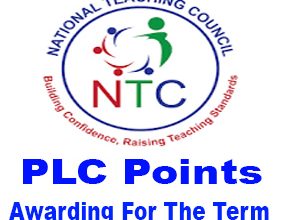
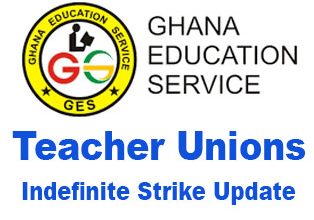
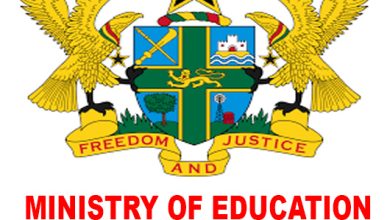
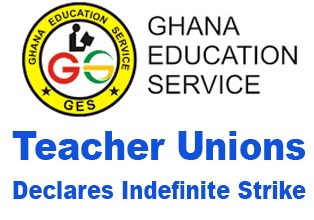
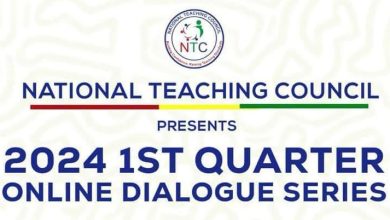
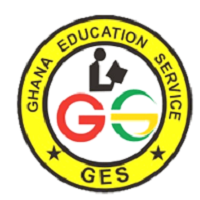

3 Comments